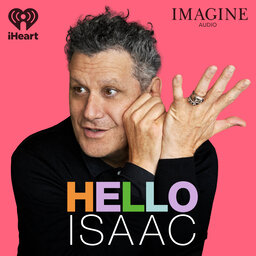Modern Family’s Jesse Tyler Ferguson
On this episode of Hello Isaac, Isaac Mizrahi talks with Jesse Tyler Ferguson about imposter syndrome, gay marriage, saving a high school musical’s production and so much more.
Follow Hello Isaac on @helloisaacpodcast on Instagram and TikTok and catch up with Jesse Tyler Ferguson on Instagram @jessetyler.
 Hello Isaac with Isaac Mizrahi
Hello Isaac with Isaac Mizrahi


